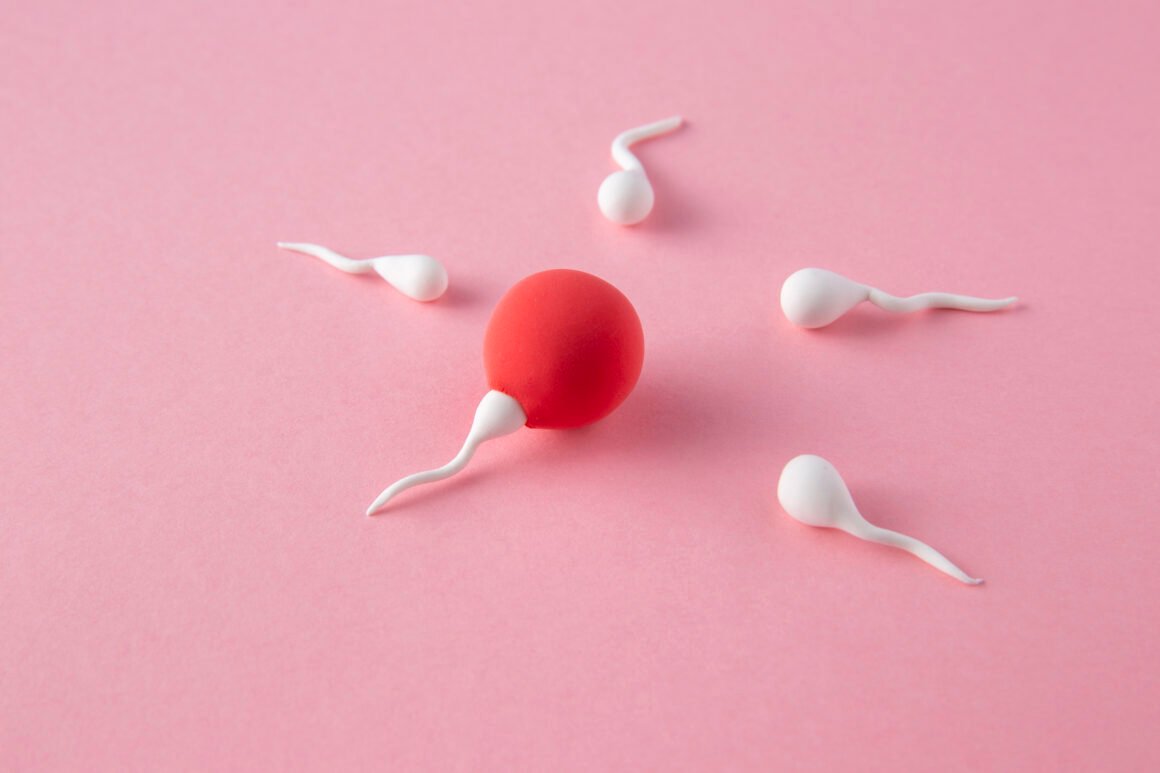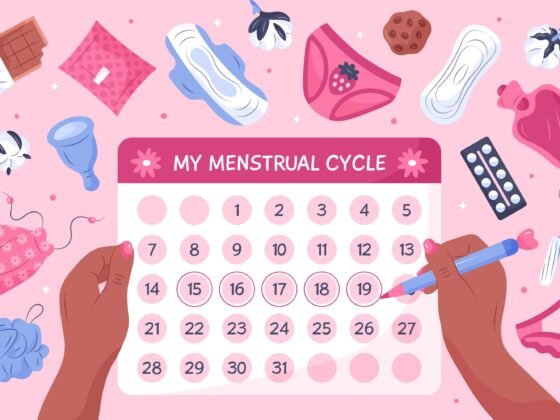Understanding the Fertile Window
The fertile window is the period during a woman’s menstrual cycle when she is most likely to conceive. This window typically lasts for about 6 days, with the day of ovulation being the most fertile day. Understanding the fertile window is crucial for couples trying to conceive, as it allows them to time their intercourse to coincide with the most fertile days.
The fertile window is determined by the lifespan of the egg and sperm. Once an egg is released from the ovary, it can only survive for about 12-24 hours. Sperm, on the other hand, can survive in the female reproductive tract for up to 5 days. Therefore, the fertile window is considered to be the 6 days leading up to and including the day of ovulation.
Accurately determining the fertile window can be challenging, as the timing of ovulation can vary from woman to woman and even from cycle to cycle. However, there are several methods and tools available to help couples track their fertile window and maximize their chances of conception.
The Importance of Timing in Conception
Timing is of the essence when it comes to conception. The fertile window is the most critical time for couples trying to conceive, as it is the only time during the menstrual cycle when pregnancy is possible. By understanding and tracking their fertile window, couples can increase their chances of successfully conceiving.
Conception is a complex process that requires the perfect alignment of several factors, including the release of a mature egg from the ovary, the presence of healthy sperm, and the successful fertilization of the egg. Timing intercourse to coincide with the fertile window is essential, as it ensures that the sperm and egg have the best chance of meeting and fusing, resulting in a successful pregnancy.
Failing to time intercourse correctly can significantly reduce the chances of conception. Couples who are trying to conceive should be aware of the importance of the fertile window and make every effort to time their sexual activity accordingly.
Factors that Affect the Fertile Window
Several factors can influence the length and timing of the fertile window, including:
- Age: As women age, their fertility naturally declines, and the length of the fertile window may change.
- Stress: High levels of stress can disrupt the menstrual cycle and ovulation, which can affect the timing of the fertile window.
- Hormonal Imbalances: Conditions such as polycystic ovarian syndrome (PCOS) or thyroid disorders can cause irregular ovulation and alter the fertile window.
- Medications: Certain medications, such as birth control pills or some antidepressants, can impact the menstrual cycle and ovulation.
- Breastfeeding: Breastfeeding can delay the return of ovulation and the fertile window.
- Lifestyle Factors: Factors like diet, exercise, and weight can also influence the timing of ovulation and the fertile window.
Understanding these factors can help couples better track and predict their fertile window, increasing their chances of successful conception.
How to Track Your Fertile Window
There are several methods available to help couples track their fertile window, including:
- Basal Body Temperature (BBT) Tracking: This involves measuring your body temperature every morning before getting out of bed. Ovulation causes a slight rise in body temperature, which can be used to identify the fertile window.
- Ovulation Predictor Kits (OPKs): These kits measure the levels of luteinizing hormone (LH) in the urine, which surges just before ovulation. This can help pinpoint the most fertile days.
- Cervical Fluid Monitoring: Observing changes in the consistency and amount of cervical fluid can also indicate the fertile window, as cervical fluid becomes more abundant and slippery around ovulation.
- Fertility Tracking Apps: There are numerous mobile apps available that can help couples track their menstrual cycles, predict ovulation, and identify the fertile window.
By using a combination of these methods, couples can better understand their unique fertility patterns and increase their chances of conceiving.
Methods for Predicting Ovulation
Accurately predicting ovulation is crucial for couples trying to conceive, as it allows them to time intercourse to coincide with the most fertile days. Here are some common methods for predicting ovulation:
- Basal Body Temperature (BBT) Charting: As mentioned earlier, BBT tracking can help identify the rise in temperature that occurs after ovulation.
- Ovulation Predictor Kits (OPKs): These kits detect the surge in luteinizing hormone (LH) that occurs just before ovulation.
- Cervical Fluid Monitoring: Observing changes in the consistency and amount of cervical fluid can also indicate the approach of ovulation.
- Ovulation Calculators: Online ovulation calculators use information about the menstrual cycle to estimate the most likely days of ovulation.
- Ovulation Monitors: These electronic devices can detect hormonal changes and provide more precise predictions of the fertile window.
By combining multiple methods, couples can improve the accuracy of their ovulation predictions and increase their chances of conceiving.
Tips for Maximizing Your Chances During the Fertile Window
Once the fertile window has been identified, there are several tips couples can follow to maximize their chances of conception:
- Have Frequent Intercourse: Aim for sex every 1-2 days during the fertile window to ensure a steady supply of healthy sperm.
- Time Intercourse Properly: Focus on the days leading up to and including the day of ovulation, as these are the most fertile.
- Maintain a Healthy Lifestyle: Factors like a balanced diet, regular exercise, and stress management can all improve fertility.
- Avoid Harmful Substances: Quit smoking, limit alcohol consumption, and avoid exposure to toxins or environmental pollutants.
- Consider Fertility-Boosting Supplements: Some supplements, such as folic acid, CoQ10, and omega-3s, may help improve fertility in both men and women.
By following these tips, couples can increase their chances of successfully conceiving during the fertile window.
Lifestyle Changes to Boost Fertility
In addition to timing intercourse during the fertile window, couples can also make lifestyle changes to improve their overall fertility:
- Maintain a Healthy Weight: Being overweight or underweight can negatively impact fertility. Aim for a body mass index (BMI) within the normal range.
- Manage Stress: High levels of stress can disrupt the menstrual cycle and ovulation. Practice stress-reducing techniques like meditation, yoga, or counseling.
- Adopt a Fertility-Friendly Diet: Eat a balanced diet rich in fruits, vegetables, whole grains, and lean proteins. Limit processed foods, caffeine, and alcohol.
- Exercise Regularly: Moderate exercise can improve fertility, but excessive exercise can have the opposite effect. Find a balance that works for you.
- Quit Smoking and Limit Alcohol: Smoking and excessive alcohol consumption can significantly reduce fertility in both men and women.
By making these lifestyle changes, couples can create an optimal environment for conception and improve their chances of a successful pregnancy.
Common Misconceptions about the Fertile Window
There are several common misconceptions about the fertile window that can lead to confusion and frustration for couples trying to conceive:
- The Fertile Window is Always the Same: The length and timing of the fertile window can vary from woman to woman and even from cycle to cycle. It’s important to track your own individual patterns.
- You Can Only Get Pregnant on the Day of Ovulation: Sperm can survive in the female reproductive tract for up to 5 days, so the fertile window extends several days before and after ovulation.
- You Can’t Get Pregnant During Your Period: While the chances of conception are lower during menstruation, it is still possible, especially if you have a shorter cycle.
- Douching Can Improve Fertility: Douching can actually disrupt the natural pH balance of the vagina and may even reduce fertility.
- Fertility Treatments are the Only Option: Many couples are able to conceive naturally by understanding and tracking their fertile window, without the need for advanced fertility treatments.
Dispelling these myths and understanding the true nature of the fertile window can help couples approach conception with more realistic expectations and a better chance of success.
Seeking Medical Help for Fertility Issues
If a couple has been trying to conceive for a year or more (or 6 months for women over 35) without success, it may be time to seek medical help. A fertility specialist can help identify and address any underlying fertility issues, such as:
- Hormonal imbalances
- Ovulation disorders
- Fallopian tube blockages
- Male factor infertility
- Uterine or cervical abnormalities
The fertility specialist may recommend various tests and treatments, such as:
- Blood tests to evaluate hormone levels
- Ultrasounds to assess ovarian and uterine function
- Sperm analysis to check for male infertility
- Ovulation-inducing medications
- Intrauterine insemination (IUI)
- In vitro fertilization (IVF)
By working closely with a fertility specialist, couples can develop a comprehensive plan to address their specific fertility challenges and increase their chances of conceiving.
Conclusion
Mastering the fertile window is essential for couples trying to conceive. By understanding the factors that affect the fertile window, tracking ovulation, and making lifestyle changes to boost fertility, couples can significantly improve their chances of successful conception.
Remember, every couple’s fertility journey is unique, and it’s important to be patient, persistent, and open to seeking medical help if needed. With the right knowledge and approach, couples can unlock the secret to successful conception and embark on the rewarding journey of starting a family.
If you’re ready to take the next step in your fertility journey, consider speaking with a fertility specialist. They can provide personalized guidance and support to help you achieve your dream of starting a family.





